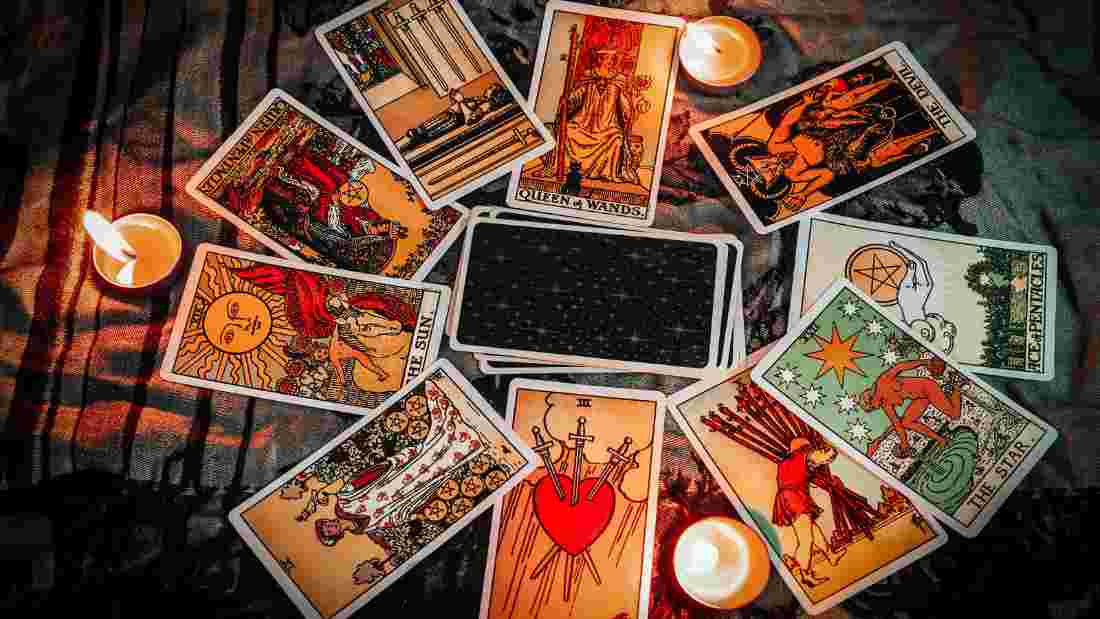Divination is the practice of predicting the future or obtaining knowledge through supernatural means. There are many different methods of divination, including astrology, tarot readings, and palm readings.
People use divination to predict the future or gain knowledge about the past, present, or future. Divination can be used for a variety of purposes, including finding lost objects, healing the sick, and curse removal. It is often also used to gain insight into personal relationships and to make decisions about important life choices.
Divination is believed to be a way to contact the spiritual world or to receive guidance from god(s) or ancestors.
There is often a diviner or shaman who acts as a mediator between the natural and supernatural world. The diviner usually undergoes training to learn how to interpret the signs and symbols associated with divination.
Evans-Pritchard‘s study of Azande witchraft provides an example of how divination can be used to resolve disputes. A diviner uses chickens and poison to determine whether a person is innocent or guilty. If the chicken survives after it is forced to ingest the poison, the person is innocent. If it dies, they are guilty.
Examples of Divination Techniques from All Around the World
Tyromancy
Tyromancy is an ancient form of divination that originated in Europe. This technique relies on reading patterns in cheese to uncover hidden messages and predictions about the future.
Typically, a piece of cheese would be cut into slices, each one representing a potential outcome or prediction. The reader would then interpret what they saw and give their prediction accordingly.
Aleuromancy
Aleuromancy is a form of divination that involves interpreting messages using flour. This technique dates back to Ancient Greece, and it was used to make predictions about the future, answer questions, and provide guidance and insight into difficult situations.
During this ritual, pieces of parchment are placed on top of a bed of flour and then buried in the ground. The person administering the ritual then took it out and examined the imprints to interpret the messages being sent from nature or divine beings.
Rhabdomancy
This form of divination involves the use of a rod or stick. In this practice, a person would hold a rod or stick while asking a question, then they dropped it to the ground. The direction the stick pointed at provided an answer or interpretation. Different cultures used different methods for interpreting these results, but all involve paying attention to how firmly or loosely the rod or stick falls and in what direction it points.
Capnomancy
Capnomancy involved the observation of smoke patterns. This practice was used by many different cultures, including Ancient Greeks and Native Americans.
During this ritual, an individual would make an offering to the gods and then observe the smoke that rose from the offering. It was believed that divine beings were sending messages through the smoke patterns in order to provide guidance and insight into difficult situations.
The participants would then interpret the shapes, colours, and direction of the smoke to answer questions or make predictions about the future.
Phyllomancy
In phyllomancy, an individual uses leaves to answer questions or make predictions about the future. This technique dates back to ancient times, when people would pick up a handful of leaves and examine them, paying attention to their colour, shape, and position on the tree.
Related Terms:
Astrology – The study of the movements and relative positions of celestial bodies in order to interpret their influence on human affairs.
Tarot – A deck of cards used for divination, typically consisting of 78 cards divided into two groups: the Major Arcana and Minor Arcana.
Shaman – A person who acts as a mediator between the natural and supernatural world.
Supernatural – Pertaining to things that cannot be explained by natural laws.
Oracles – Spirits or deities that are consulted for guidance or predictions.
Anthropology Glossary Terms starting with D
Disclosure: Please note that some of the links in this post are affiliate links. When you use one of my affiliate links, the company compensates me. At no additional cost to you, I’ll earn a commission, which helps me run this blog and keep my in-depth content free of charge for all my readers.


